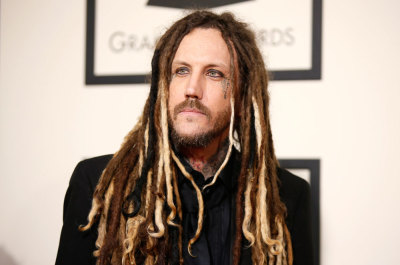America’s drug crisis: Christians in music, ministry share how drug abuse affected their lives

Brian Head Welch
Guitarist and co-founder of the metal band Korn, Brian "Head" Welch has been vocal about his past problems with drug addiction. And the rocker wants people to know that he wouldn’t have been able to kick the bad habit without God's supernatural intervention.
Welch helped found Korn in 1993 and lived a life of sex, drugs and rock ‘n’ roll until he left the band for a time in 2005 to follow Jesus.
“The last two years (before leaving the band) I was addicted to crystal meth and pills,” Welch told The Christian Post in a previous interview. “I would take crystal meth for the high, the come up, and then if I was up for a couple of days I would take Xanax to come down and go to sleep. Or if I had to go on stage I would take Xanax to stop my hands from shaking because the meth was so crazy.
In the last two years of his drug abuse, Welch knew it was getting out of control. He revealed the beginning of the end began with a two-month binge while he was crossing the country with eight balls of crystal meth on him.
“I was like, ‘Oh my gosh, this is not me. I can't do this. I've never done this. I've never done a binge for this long, this is not my life. I'm going to quit after this tour,” he recalled feeling at the time.
The entire season he remembered telling himself that his behavior was “crazy” but Welch continued to travel around the world taking the risk each time.
“The whole time I was scared and I was ashamed of myself inside. Inside, I felt that darkness. And I was like, ‘but when am I going to do it? I can't do it. I gotta quit. But I couldn't take the step to quit and kept going and going. And then when I got a year into it, I was just like, this is it. I'm just I'm stuck,’” Welsh said.
Two months would eventually turn into two years of this internal battle for the rocker. He even had his dealer sending him drugs through FedEx as he traveled across the country.
“It was just my life,” he admitted. “I've crossed the line many times but that was over the top and you know, sending it through FedEx. I got home and I was like, ‘this is it, I've crossed the line and went too far, I gotta start taking steps to get off drugs.’”
When he returned home to California he started taking the steps necessary to get clean. The musician first tried drug counselors but it wasn’t until a couple of his friends invited him to church that he would encounter a high he never had before.
“Anything about soberness I was going toward. The drug counselors, they were nice and everything but I didn't feel any hope there. I just felt like this hard knuckle [approach]: ‘Just get sober.’ It just felt like a prison,” Welch said.
“At the church, I just felt all this love. ‘God loves you, and He'll help you,’ [they said]. So I felt so much lighter and freer. I didn't have to do it on my own. Once His love touched me I was instantly addicted to God's presence,” the tattooed musician testified.
Welch soon realized his drug use was getting in the way of him experiencing God. “The drugs were in the way of me feeling God's presence. So I had to get rid of that because I'm more addicted to the reality of God,” he said.
At the time, Welch walked away from a $23 million record deal and left Korn to pursue Jesus Christ as his Savior and become the family man God wanted him to be, a journey fans will see in his upcoming film, "Loud Krazy Love.”
When asked how the church can help those struggling with addiction, Welch shared his advice for the body of Christ.
“It's got to be supernatural. Everyone's different, we're all wired different,” he said. “I just think the church needs to be accepting and not try to fix people on their own.”
Welch added, “God has to come into them and they have to have the revelation that He's being invited in to live inside of them and He's going to take up residence there, the indwelling Christ.”
He explained that addicts need to grab a hold of that and not only 12 steps in order to find the freedom they need.
“Steps are good, I'm not discounting those but the most important thing is that God fills that hole because they're trying to fill that hole with drugs, just like I was. So they need to be brought to that situation where they connect with God one on one and they [the church] can teach them how,” he said.
Welch also offered advice to anyone seeking freedom in Christ.
“When you're alone and you don't have the groups or the people, you need to have that foundation of you and Him, where He makes you feel like there's nobody else in the world, and He's spending His time with you and you alone,’” he illustrated. “Even though you know that God knows all these other people and He's doing the same with them, but it makes you feel as if He's right there with you.”
“That's the supernatural touch in love. That will change the world,” Welch said.
In 2013, after getting sober and publicly sharing of his newfound faith through the most watched white chair film in “I Am Second” history, Welch felt compelled to return to Korn.
He now uses his voice to share of his faith in Jesus. For more information about his new film “Loud Krazy Love,” click here.



























